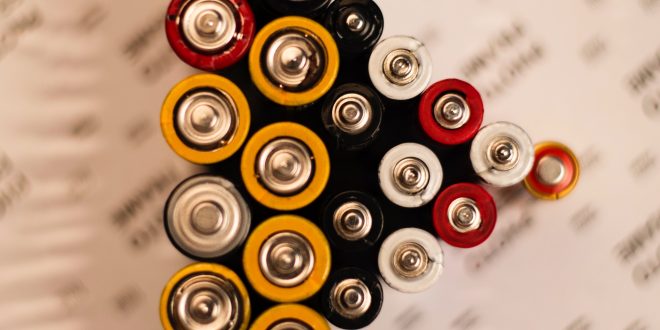You use batteries for everything. They’re in your phones, laptops, cars and everyday devices. They’ve been around for centuries, but with the push for sustainable living, many consumers and experts are hopping on the movement to develop improved battery technology.
Lithium-ion batteries are the standard for what you use. And since batteries are only becoming increasingly popular, they will evolve with the green-living movement. But when will these developments come along?
Battery Popularity
The battery first came about in 1799. An Italian physicist named Alessandro Volta stacked zinc and copper discs in saltwater and attached wiring until he created a current. From there, the battery developed into what it is today.
Batteries are a beneficial alternative to fossil fuels. Rechargeable batteries, especially, can be a cost-effective and smart way to reduce waste. But today’s lithium-ion batteries come with issues.
From their materials, flammability and energy efficiency, batteries require some modern improvements.
Problems With Lithium-Ion Batteries
The issues with current batteries have environmental and cost-effective consequences.
First, the materials that go into lithium-ion batteries can be toxic to humans and the environment. Nickel and cobalt are two of the main ingredients in making these kinds of batteries. Nickel is a carcinogen, meaning that inhaling it or ingesting it in any way can lead to harmful effects. Similarly, too much cobalt in your system can entail cobalt poisoning.
While the two are naturally occurring heavy metals, they can harm the environment. When in production, nickel can release greenhouse gas emissions into the atmosphere. Mining cobalt can lead to habitat destruction, and its production can send radioactive isotopes into nature.
Batteries can release other toxic chemicals into the environment, too, when people don’t dispose of them properly. They don’t biodegrade readily, either.
Other issues with batteries include short life and flammability. When shipping especially, lithium batteries risk igniting or exploding, which entails special packaging to prevent this problem. And of the batteries that charge, like ones in your phone or car, their battery life is relatively low.
With these issues, experts are working to develop new batteries that are environmentally friendly and long-lasting.
New Developments in Battery Tech
Lithium batteries aren’t going anywhere any time soon. But new developments are paving the way for improving upon those batteries or creating new ones altogether.
For instance, IBM’s heavy metal-free battery could revolutionize our future. This new battery would use seawater to provide an environmentally friendly option. It would cost less to manufacture, charge faster than standard batteries and have a lower flammability rate.
Another development comes from researchers at Monash University, who are working on a lithium-sulfur battery. They hope to make this battery strong enough to power a smartphone for five days on a single charge. They also believe it will have lower production costs than lithium-ion batteries and a smaller impact on the environment.
These are just two promising examples of battery developments that are leading battery production in the right direction. These innovations will benefit users in terms of costs, as well as the environment.
The Future of Sustainable Batteries
Current batteries are an improvement from fossil fuels and nonrenewable energy. This benefit is one of the reasons they are becoming so popular. However, due to their harmful materials and waste, they’re overdue for a sustainability makeover.
Following the trajectory of battery popularity, electric vehicles will continue to increase, from cars to motorcycles and even planes. Houses, too, have begun running on battery power. With solar and wind leading the charge for sustainability, battery power will add support to their efforts.
The way toward full sustainable energy is through a combination of renewable energy and power. The standard lithium-ion batteries are no longer sufficient. The future of the environment demands eco-friendly batteries.



